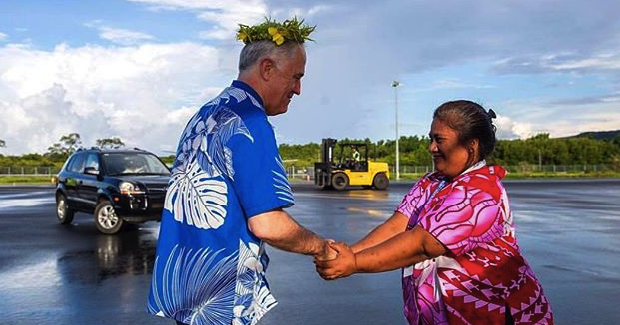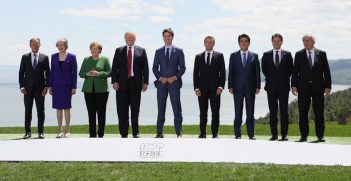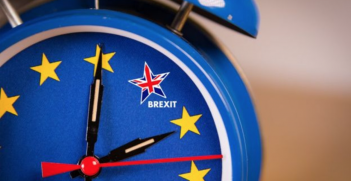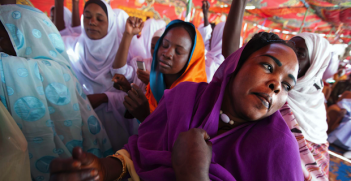Turnbull's First Pacific Islands Forum

Prime Minister Malcolm Turnbull attended his first Pacific Islands Forum leaders’ meeting in remote Pohnpei, capital of the Federated States of Micronesia, late last week. Australian leaders have an unfortunate record of skipping Pacific Islands Forum leaders’ meetings, reinforcing an equally unfortunate perception that Australia does not take the region seriously.
At a time when non-Western powers are increasingly engaged in our region and after the tension over climate change at last year’s forum, it was important that Turnbull assert Australia’s enduring commitment to its neighbours.
It was refreshing then to see the Prime Minister announce his commitment to a “step-change” in Australia’s engagement with the Pacific Islands region. While the full extent of the new Australian approach is yet to be revealed, the Prime Minister’s rhetoric at Pohnpei was very positive and will probably be welcomed by island leaders. His reference to initiatives that “will not only provide longer term policy direction and coherence, but also longer term actions and investment that will support continued stability and resilience in the region” is encouraging even if it is hard to see how it can be sustained through Australia’s short-term electoral cycles. The Prime Minister’s stated willingness to “listen” to Pacific views was also significant as Australian leaders are known more in the Pacific for talking rather than listening.
Australia and New Zealand are usually at odds with the island countries on the existential threat posed by climate change. While it is unlikely Australia will ever deliver the level of carbon reduction targets sought by Pacific Island governments, the priority Malcolm Turnbull put on political and practical support for regional climate change and disaster risk management is important. The increased financial support offered by Australia ($300 million to Pacific Island countries over four years including $75 million for disaster preparedness) may not be enough but is nevertheless welcome. Australia’s efforts to secure more funds for the Pacific through the Green Climate Fund may ultimately be more significant for the region than Australia’s own contribution.
Australian support for the Pacific Islands region’s maritime security is crucial. Maritime security in the islands region has very different dimensions to maritime security in East Asia—it is primarily about protecting the region’s valuable fisheries. The Pacific Patrol Boats Replacement Program and Australian support for more aerial surveillance are valuable contributions to a range of regional cooperative efforts to protect, sustain and enhance the value of the fisheries sector to Pacific island countries.
The major news from the forum was the admittance of New Caledonia and French Polynesia as full members. There is some speculation this decision was driven by Australian and New Zealand concerns about increasing Chinese influence in the region and China’s close relationship with Fiji. But it is not clear how the official presence of France in the forum through representation by the governments of New Caledonia and French Polynesia would have any impact on China’s interests in the Pacific islands region. France is hardly a new player in the region and already has a sizeable military presence in New Caledonia, which has not deterred Chinese business interests in New Caledonia’s nickel sector.
The inclusion of New Caledonia and French Polynesia in the forum family should be welcomed. New Caledonia, which will hold a referendum on independence from France in 2018, has a population of a similar size to its nearest neighbour Vanuatu, and an economy over 10 times its size. When France works with Australia and New Zealand to respond to natural disasters in the region (in an arrangement known as FRANZ) it deploys assistance from New Caledonia. The major international issues discussed at the forum (such as climate change, fisheries, transnational crime, increasing incidences of non-communicable diseases) impact New Caledonia and French Polynesia in similar ways as other members of the forum. As Pacific Islands Forum Chair Peter Christian said, cross-border issues have “no respect for political borders”.
Leaders’ discussions on the region’s free trade agreement, PACER Plus, resulted in an announcement about a timetable which will see market access negotiations concluded by October this year and the agreement itself signed by the end of 2016. The communiqué made a reference to PNG’s decision to withdraw from the agreement and to Fiji’s reservations on the current text of the agreement but did not comment on this. While it is certainly possible to have a FTA without the region’s two largest independent island economies, it is hardly desirable and will likely make it more difficult to realise genuine positive impacts on small island economies. While leaders no doubt thought it best to leave this thorny issue to their trade ministers, they missed an opportunity to debate the benefits of PACER Plus while they had the region’s attention.
The Pacific Islands Forum has long had a Fiji problem. The forum suspended Fiji in 2009 after Prime Minister Bainimarama failed to follow through on a promise to hold elections and after the Fiji President abrogated the constitution. Two years after Fiji’s elections, it still has a Fiji problem. While Fiji was suspended, Bainimarama established and still continues to lead his own regional organisation—the Pacific Islands Development Forum. The now elected Prime Minister Bainimarama has refused to attend the Pacific Islands Forum leaders’ meeting although Fiji was welcomed back in the Forum after the September 2014 elections. He has instead deputised his Foreign Minister Ratu Inoke Kubuabola to represent Fiji. Kubuabola had established good relationships with counterparts, perhaps because he was more accessible to them than Bainimarama is to his counterparts.
But the forum’s relations with Fiji may be about to get even trickier. While Foreign Minister Kubuabola was in Pohnpei he lost his job in a reshuffle—to Bainimarama himself. To complicate matters further, while the leaders were still meeting in Pohnpei, Fiji’s police arrested six prominent critics of the Bainimarama government, amongst them National Federation Party leader and MP Biman Prasad, for discussing Fiji’s constitution at a conference organised by Pacific Dialogue, a Fiji NGO. The six men were released without charge after being held for 48 hours but their cases have been referred to the director for public prosecutions. The Fiji government’s commitment to democracy is looking increasingly shaky; a situation which will likely pose an ongoing challenge for the Pacific Islands Forum.
The 2016 Pacific Islands Forum was perhaps notable for discussion on building on previous initiatives rather than announcing major new ones. The exception is the agreement reached on a Framework for Resilient Development in the Pacific. Although the media is hungry for ‘announceables’ and controversy, the value of an uncontroversial forum which builds on existing work should not be underestimated. Agreement on regional cooperation is a challenge in itself but sustaining the commitment of leaders of small countries to contribute to regional cooperation when they are dealing with so many serious domestic development issues is just as difficult. The forum secretariat’s ongoing efforts to make it all work deserves support.
Jenny Hayward-Jones is a Lowy Institute nonresident fellow and former director of the Melanesia Program at the Lowy Institute. Prior to joining the Lowy Institute, she was an officer in the Department of Foreign Affairs and Trade for 13 years, serving in the Australian missions in Vanuatu and Turkey. This article is published under a Creative Commons Licence and may be republished with attribution.





